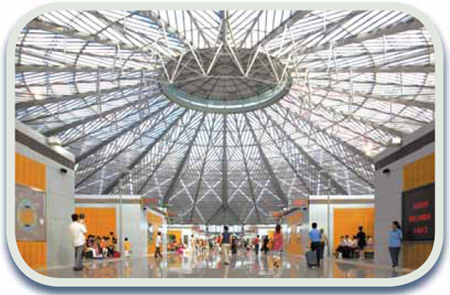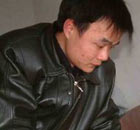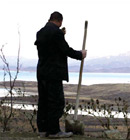AREP
Fleur hails decade of Sino-French cooperation
(China Daily)
Updated: 2009-12-22 07:52
 |
Large Medium Small |
|
Completed in 2006, the South Shanghai Railway Station has become more than a simple rail juncture. It now serves as the city's southern gate. |
Editor's Note: Coinciding with the visit to China of the French Prime Minister Francois Fillon, French architectural firm AREP is celebrating the 10th anniversary of doing business in the country. China Daily reporters Tang Ying and Wang Danna interviewed Fleur des Digures, director general of AREP China, who was the catalyst for AREP entering the Chinese market 10 year ago and has participated in every step of its development.
Q: AREP has created many landmark buildings in Beijing, Shanghai, Tianjin and other large cities, such as Wuhan, Chengdu and Shenzhen. Could you briefly tell us what AREP has achieved during its first decade in China?
Fleur: AREP participated in consultations to rebuild Nanjing Railway Station in 1999 and established a representative office in Beijing in 2000. Thanks to the fast pace of the Chinese construction industry, AREP has enjoyed rapid growth from a one-person representative office to a company with more than 40 architects.
We are proud to see our buildings in many Chinese cities are now landmarks. To give you an example, we worked on the Beijing Capital Museum, the Xizhimen Transportation Hub and Business Center, the South Shanghai Railway Station, Wuhan Railway Station and the Tianjin TEDA Financial Center.
Q: As one of the most senior figures in AREP China, are you satisfied with these achievements?
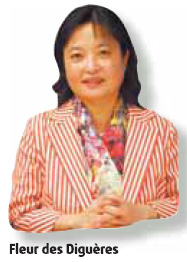
Fleur: I dare not say that all these projects have been huge successes. That should be judged by the people who live in the cities and the owners of these buildings. Some of our architectural designs have won considerable credit and praise. I see these achievements as the result of sound cooperation between China and France.
Q: What do you think is the key factor in the popularity of your designs? Why do local governments, private citizens and project owners opt for your firm?
Fleur: I attribute our success to our excellent architectural team, both our innovative French architects and our talented Chinese designers, who turned the original ideas into landmark buildings.
Our President Jean-Marie Duthilleul and General Manager Etienne Tricaud are outstanding architects, engineers and artists. They have rich experience and many of their works are highly regarded by the French people. Both of them genuinely respect Chinese history and culture.
Duthilleul was enchanted by Chinese philosophy when he was a university student. He read a lot of Chinese Confucian classics and made friends with the famous Sinologist Claude Larre. He said that Chinese philosophy inspires his designs and Chinese culture makes him passionate when talking about his design for the Beijing Capital Museum.
Duthilleul took inspiration for the eaves from hutong courtyard houses and gave them an avant-garde look for the museum. This combination of traditional and modern Chinese culture makes the museum a prime example of fundamental Chinese urban architecture blended with a newfound contemporary character.
Duthilleul and Tricaud are keen to communicate with Chinese architects. AREP has sponsored 50 Chinese architects and urban planning designers to work in its French headquarters for a year. This is a part of a Sino-French architecture exchange program called "150 architects in France.
Through the intensive exchange of architectural theories and thoughts with these architects and urban planning officials, Duthilleul and Tricaud have acquired a deep understanding of Chinese culture and architecture.
When designing the Wuhan Railway Station, Tricaud used the yellow crane as the shape to underline his understanding of local culture and tradition.
Q: Talented people are usually distinct and have very much their own personalities. Is it hard to work alongside famous architects, such as Duthilleul, Tricaud and your Chinese colleagues?
Fleur: Duthilleul and Tricaud are very talented, but very genial. They are very cooperative when communicating and cooperating with Chinese architects and design institutes. Our Chinese colleagues are very cooperative and easy to get along with.
Q: How do you evaluate the contribution of your Chinese colleagues?
Fleur: That is exactly what I am proud of. AREP aims to be a bridge between France and China, especially in the architectural field.
I would like to point out that my Chinese colleagues have done an enormous amount to implement the French architects' idea. They are professionals in the architectural field with a good educational background from famous universities and with rich working experience in Chinese design institutions. They are very aware of Chinese culture and history. They are extremely efficient and flexible. Without them, these innovative ideas could not be realized and accepted by the Chinese people.
I am so happy to see that some of my Chinese colleagues have become well-known figures in the architectural field after years of training and practice. Tang Jun, general architect of AREP China, Wang Zheng, Li Ling, Wang Xiang and Shen Xiang stand out.
Wang Zheng, who graduated from Tsinghua University, is able to do concept design himself. He fully understands the masters' original draft and add his own creativity in the detail design. Some of his ideas are highly praised by Duthilleul and Tricaud. His talent is fully displayed in the design of South Yunnan Railway Station and Yunnan Theatre.
Wang Xiang and his designing team did a wonderful job in the design of Qingdao Railway Station. Inspired by the typical geographic location, he designed the outlook of the railway as a seagull flying between the blue sky and sea. The Ministry of Railway, Qingdao municipal officials and citizens highly praise the design and it won the bid.
Shen Xiang, with an English name Sunshine, is our female backbone. She has been working for AREP since 1991 and did excellent jobs in Xizhimen and Wuhan projects. She is gentle and always smiling, but she is also resolute and hardworking. She is now in Hangzhou leading a 20-person team and working for design development for the Hangzhou Qibao Complex project.
We are sure that the project, to be started late this month, will shine on the Chinese land just as her English name Sunshine.
Q: How do you think your Chinese colleagues regard the projects designed by AREP?
Fleur: I guess they feel both proud and little regretful. They are proud to see that their works stand out in the city as landmarks. They have a strong feeling for these projects, which remind them of the sleepless nights they spent to ensure the design was perfect. They may also regret that not all of the original concepts can be fully realized, due to funding, cultural differences and specific situations.
Q: You have been working at AREP for 10 years. I can see that you are very enthusiastic when we talk about these projects. Do you love your job?
Fleur: I really love it. If you buy an item of clothing, you can throw it away if you don't like it. But a building will stand there no matter whether you are proud of it or ashamed of it. Architecture is a part of our history that cannot be undone. We must be very careful and spare no effort to make every project an example of unique and practical architecture.
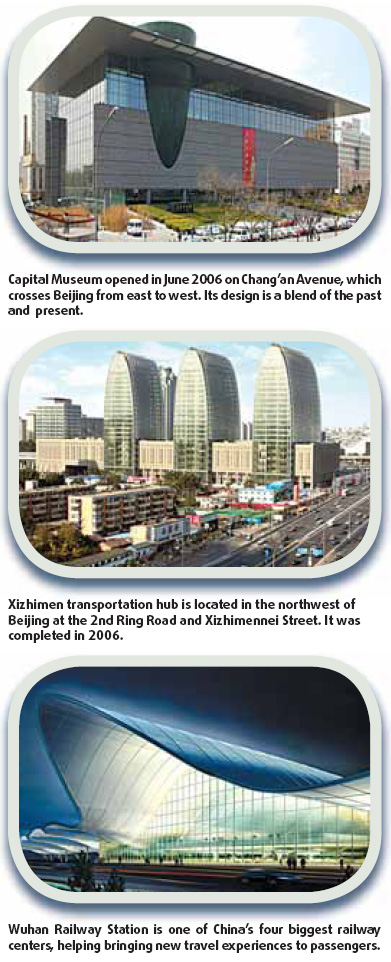
(China Daily 12/22/2009 page12)
